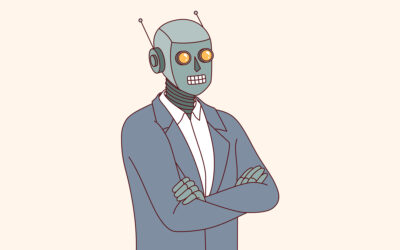The Internet was built on the dream of being an open, democratic landscape where everyone’s voice had a chance to be heard. But that dream? It’s slipping through our fingers, fast. Today, the lines between censorship, algorithmic control, and flat-out suppression blur like never before. Here’s what’s really happening, and why it should keep you up at night.
1. Censorship Is No Longer a “What-If” Scenario—It’s Here and Normalized
Instances of censorship aren’t the exception—they’re the rule. Platforms like YouTube and Facebook have doubled down on removing content that falls into gray areas, while alternative voices like Brownstone have given up on mainstream platforms entirely. Moving to Rumble or X isn’t just a choice; it’s survival. These content creators are trading reach for the chance to exist at all.
2. Algorithms Are Today’s Gatekeepers of Content Visibility
It’s no longer as simple as a “ban” or “no ban.” Algorithms act as digital choke points that determine whether your content sees the light of day. Joe Rogan’s interview with Donald Trump garnered a jaw-dropping 34 million views before YouTube and Google “tweaked” their search engines to bury it. Whether a post stays visible, becomes invisible, or fades into obscurity depends on those hidden lines of code.
3. “Soft Censorship” Has Become a Core Business Model in Alternative Media
Navigating this minefield has become an operational necessity for alternative media. Platforms and creators have to be constantly aware of what might get them throttled, demonetized, or outright banned. This is not just censorship but an ongoing challenge to stay afloat and reach audiences.
4. Historical Record? We Don’t Have One Right Now
Think you can just look up what someone said on the internet six months ago? Think again. Archive.org, which has been mirroring web content since 1994, recently stopped taking images of all platforms. Since early October, it hasn’t captured a single piece of web content. This gap is more than a hiccup; it’s a black hole in our digital memory, right before one of the most consequential elections in U.S. history.
5. Verifying Online Claims Has Become a Game of “Trust Me, Bro”
With Archive.org down, any website can post something today, scrub it tomorrow, and leave no trace. This creates a new level of vulnerability for researchers, historians, and journalists who rely on these archives to track changes and hold people accountable. Screenshots? Those can be doctored. And now, there’s no official record to back them up.
6. The “DDOS Attack” That Shut Down Archive.org Is Questionable Timing at Best
The timing? Let’s just say it’s suspicious. A DDOS attack hit Archive.org on October 8, 2024, wiping out their ability to document the web in real time. Coincidence? Maybe. But considering it’s an election season, it feels a little too perfect. Archive.org claims it’s working on resuming services safely. The question is, when? Will it be too late?
7. The Dream of a Transparent Internet? Replaced by “Stakeholder Governance”
The “Declaration of the Future of the Internet” sets the tone for this new era. It openly promotes a “multi-stakeholder” approach, meaning governments, private companies, and “relevant authorities” get a seat at the table. This model benefits those who want to operate in the shadows without leaving digital footprints. It’s a controlled, selective memory of the internet, where only certain voices and versions of the truth remain.
8. Google’s Cache Feature? Vanished Overnight
Once upon a time, you could rely on Google’s cache feature to find pages as they appeared at a given moment, even after edits. As of late September 2024, Google has axed this feature. The timing? Just days before Archive.org was attacked. Without a cached version, the live page is the only page. History as we know it has become a single, editable, erasable entry.
9. AI Now Curates “Truth” Based on Whose Narrative?
Traditional search rankings were once governed by user behavior—what users actually found valuable. But today, search engines are increasingly driven by a mix of “trusted sources” and hidden algorithms that shape our online experience. Search results now filter for “approved narratives,” pushing alternative or challenging perspectives to the digital abyss.
10. Goodbye Alexa, Goodbye Transparency
Remember Alexa, Amazon’s tool that ranked websites by traffic? For years, it provided insight into a site’s reach. Then, Amazon did something strange. In 2022, it pulled the plug on Alexa. Why? No clear reason was given. The message is loud and clear: if you want insight into web traffic, pay up or look elsewhere. The transparency of what’s popular or influential has now become a paid privilege.
11. From COVID to Today: Internet Censorship on Steroids
The pandemic years of 2020-2023 served as a testing ground for massive censorship, with global authorities banding together to “fact-check” and curate narratives on a scale we’d never seen before. This exercise in control laid the groundwork for today’s unprecedented normalization of internet censorship. We’re left with an online landscape shaped more by gatekeepers than organic public interest.
12. The Death of Digital Memory: Why This Matters Now More Than Ever
It’s not just that internet content is disappearing. It’s that our entire ability to remember, compare, and question is slipping away. Right now, we’re missing three weeks of web content—critical gaps that mean we don’t even know what we don’t know. Without Archive.org or Google Cache, future generations may never grasp what the internet was once like or what it’s losing day by day.
The Bottom Line? The Internet’s Future Requires More Than Hope.
Restoring a free, democratic internet isn’t a passive effort; it’s going to require grit, vigilance, and some serious pushback against the forces shaping today’s information landscape. With Archive.org’s blackout and Google’s cache gone, the entire memory of the internet is a shadow of what it was. This isn’t just about missing three weeks of data—it’s about a world where today’s truths vanish tomorrow without a trace.
And while some people might look at this and shrug, thinking it’s all just part of the “digital age,” the reality is that each black hole, each vanishing archive, each tweak to the algorithm brings us closer to an internet with no history, no accountability, and no freedom.
So, next time you read a headline about censorship, remember: it’s not just a story. It’s the erasure of our digital future. The question is, are you okay with that?





